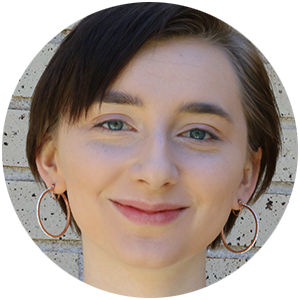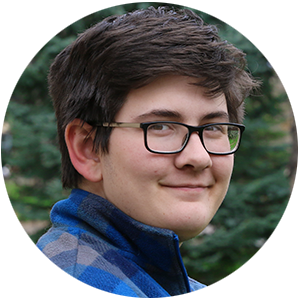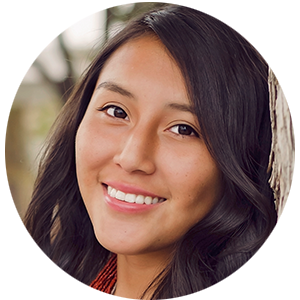
With 74 majors, hundreds of concentrations, and even more ways to specialize, customize, and personalize your education at CSU, it’s no wonder there are overlapping disciplines. Psychology, Sociology, and Social Work are three popular majors at CSU that feature human-focused studies and research, and are easy to confuse. Let us break them down for you a bit.
Psychology
What is Psychology?
Psychology focuses on the human aspect of the world. It lets us understand our own cognitive processes, how we see the world, and how we interact with others. It’s an attempt to understand human behavior by studying development, perception, learning, motivation, and thinking — and the relationship of these processes both to the physiological and social functioning of humans. As a psychology student, you will study a broad coverage of the discipline, have the opportunity to use technologies and tools for research, and prepare for a graduate education or diverse career path all under the supervision of field leaders.
What makes Psychology at CSU different?
The Psychology degree at CSU is a Bachelor of Science, and it’s housed within the College of Natural Sciences, alongside other scientific disciplines that focus on writing, research and applied experiences. This allows you to concentrate more on psychology as a natural science rather than a liberal art, and is beneficial both for students interested in pursuing a graduate degree and those who plan to go into the field directly after graduation.
Are there ways to customize the Psychology major?
There are five concentrations within the CSU Psychology major that will allow you to both explore Psych on a broad level, and then choose a specialty area where you can focus more deeply: Addictions Counseling, Industrial/Organizational Psych, Clinical/Counseling Psych, Mind, Brain and Behavior, and General Psychology.
Careers in Psychology
Counseling, research, and teaching are all great career paths for Psych majors. Additionally, many Psych majors have skill sets tailored toward the human resources. Psych grads can also work closely with engineers and designers to ensure that their designs are logical and ergonomic, guaranteeing ease of use. Some CSU grads have gone onto become:
- Addictions counselors
- Human resources professionals
- Benefits and compensation administrators
- Market researchers
- Neuropsychologists
- Probation officers
- Mental health services workers
- Clinical psychologists
- Family therapists
Meet Allie, a CSU Psychology major

What’s your favorite thing about Psychology?
I love the breadth of psychology. It can impact every facet of our lives, and this allows classes to introduce a wide range of perspectives and applications.
What led you to this major?
I was originally a Biochemistry major, but I just wasn’t passionate about it. While the classes were interesting, I personally never felt as though it applied to my life or the world around me. I took an introductory Psych class in spring of my freshman year, and instantly fell in love with it. After speaking with the professor for that course, I knew that it was the right field of study for me, and switched my major.
Do you have any advice for students interested in studying Psychology?
Take advantage of the opportunity to do an internship! I worked as a research assistant in the HEART lab here on campus for a year and a half. The lab mainly researches the interactions of health and emotion across the lifespan. I’m actually working with the lead researcher, Dr. Gloria Luong, on my undergraduate thesis regarding how neuroticism and conscientiousness can affect stress responses. I’m doing things that many universities reserve for grad students, and I know it’ll serve me well in the future.
What has been your favorite class so far in the major?
I was fortunate enough to be able to take Forensic Psychology last year. I loved the format of the course and the material we covered was incredibly engaging. It had a huge impact on my beliefs, and really sparked an interest in criminal justice.
Do you have plans after college?
I plan on going to graduate school to pursue a doctoral degree. I want to be able to positively impact people’s lives, so I want to either work on reducing the stigma associated with mental illness or join a non-governmental organization and try to enact prison reform.
Sociology
What is Sociology?
Sociology offers students an important skill set to carefully think about the relationships, organizations, and institutions that are the building blocks of communities and societies. Being a sociology major means developing the critical thinking to think about, study, and analyze local and global social problems like crime and victimization, water pollution, or inequitable access to food — as well as develop and evaluate the policies and programs designed to solve them.
What makes Sociology at CSU different?
Sociology at CSU is a program where faculty are dedicated to both teaching and to research. Because of this, you have opportunities to learn in a supportive, innovative setting from instructors who are doing sociology right here, right now — both in the local community, and as far away as Mexico and Africa. The program also values providing you with opportunities outside of the classroom, which includes working on research projects directly with faculty, completing internships to explore career aspirations, and even studying and researching abroad. One popular trip takes students within the Criminology concentration to study with Criminology faculty in Prague.
CSU’s Sociology major also has one of the nation’s highest percentages of faculty working in the emerging area of Green Criminology, a branch of criminology that involves the study of harms and crimes against the environment broadly conceived, including the study of environmental law and policy, the study of corporate crimes against the environment, and environmental justice from a criminological perspective. This is just one example of how students can experience courses and projects that overlap and result in a unique, diverse training.
What are the concentrations within the Sociology major?
There are three concentrations within the CSU Sociology major, each offering a unique way for you to concentrate (see what we did there?) on a specific area within Sociology. You can specialize in General Sociology, Environmental Sociology, or Criminology and Criminal Justice.
Careers in Sociology
Many students first step onto their career path in sociology as case managers, in the justice system as police officers or as victim advocates, or doing research for government organizations or private companies. Students also often go onto graduate or law school. Sociology offers a combination of people skills, research training, and a mindset in critical thinking that allows students to be prepared to work in a variety of fields beyond the conventional, as well. CSU alumni have graduated into many roles, including:
- Human Relations professionals
- Program coordinators
- Policy analysts
- Operations directors
- Public administrators
- Labor relations specialists
- Politicians
- Criminologists
- Journalists
- Overseas advocates
- Lawyers
Meet Lavi, a CSU Sociology major

What’s your favorite thing about Sociology?
I like the options to choose from, including deviance, gender and sexuality, and just about anything I have interest in has a sociology bend to it. General Sociology covers a variety of topics, and has a wider scope than criminal justice.
What led you to this major?
I started out at a community college, where I’d taken a Sociology course, but hadn’t done well and figured it wasn’t for me. Then I majored in theatre, and moved to illustration. I loved them, but neither had the career prospects I was hoping for. Once I got to CSU, I took another Sociology class with a professor who was particularly passionate about the subject, and I fell in love with it, too.
Do you have any advice for students interested in studying Sociology?
If you want to explore Sociology, Sociology 100 is a great introduction to the subject, and there’s something for everyone. You’ll start to look at classical sociology theory, as well as things like deviance. One example of deviance within a sociological context are things that go against the norms of society, such as facing the wrong way in an elevator. You’d be surprised at how that small, simple action can impact the elevator ride for people around you.
What has been your favorite class so far in the major?
I loved Comparative Sociology, a class I took during study abroad in Japan. It involves the comparison of the social processes across different types of society, like capitalist and socialist. My studies in Japan were centered around race issues and deviance in Japanese society.
Do you have plans after college?
I hope to go onto grad school and study gender and sexuality in the U.S. or on a global scale. I’d also like to examine how gender and sexuality affects perceptions within a rural society and look at gender through the rural viewpoint. Eventually, I’d like to teach sociology and pass on my interest and passion for it onto the next generation.
Social Work
What is Social Work?
Social Work is a helping profession, engaging diverse people in a wide variety of settings. Social workers assist individuals, families, groups, agencies, and communities, and even create policy changes through legislative government. Social work can include mental health therapy, case management, advocacy, mediation, administration, resource linkage and referrals to medical or mental health specialists.
A common misconception about social workers is that they only help abused and neglected children or only work in probation settings. Social workers are all around us, doing valuable work with all kinds of people in need of support or services.
What makes the Social Work major at CSU different?
Social work students and faculty at CSU are naturally close knit and supportive because the programs focus on social justice, equity and equality, anti-oppression, and enhancing human health and well-being. You have many opportunities for hands-on learning in the field where you’ll see the benefits of your work early on in your education. Both students and faculty come to the School of Social Work ready to make a difference in the lives of individuals, families, groups and communities. The programs are fully accredited so students can graduate ready to begin their careers as social work practitioners.
Careers in Social Work
The field of social work covers a wide variety of career options. Students in the School of Social Work can choose a career path based on personal values and interests, or they can go into research and graduate studies. There can be a misconception that graduates won’t make enough money in this profession. Social workers are paid similarly to teachers, firefighters, and other helping professions. There are valuable jobs in this field that begin with a bachelor’s degree and even more jobs when students go on to get their master’s degree. Some careers CSU’s Social Work students have gone into include:
- Child welfare worker
- Adolescent group home counselor
- Crisis counselor
- Geriatric social worker
- Nursing home administrator
- Community outreach coordinator
- Youth program counselor
- Foster parent consultant
- Probation officer
- Adoption worker
- Substance abuse/domestic violence counselor
Meet Kayla, a CSU Social Work major

Kayla Miller
Social Work and Sociology double major with a concentration in Criminology
Graduation year: 2020
What’s your favorite thing about Social Work?
So much of Social Work is about making the world a better place and enabling positive changes in the communities around us. It allows for you have a meaningful and impactful purpose in your everyday work and your life overall … and I think that is such a wonderful way to live.
My favorite thing about the Social Work major is how flexible it is. You can go as far as working one on one with individuals or take on bigger challenges such as policy practice at the state or national level. Social Work at CSU also allowed me to fit in a second major (Sociology with a concentration in Criminal Justice) so I can further specialize my skills and abilities and go into a career with an edge.
What led you to this major?
During my freshman year, I didn’t have a major. I was led to this major while taking the Introduction to Social Work class. I learned about the many careers that a social worker can engage in. It led me to realize my passion to help underrepresented communities in my future work.
Do you have any advice for students interested in studying Social Work?
Take advantage of internships! As an undergraduate, I have had the opportunity to have two great internships over the course of two summers. During my first internship I worked at the Office of the Prosecutor with the Navajo Nation Government in Shiprock, NM. I assisted the Chief Prosecutor with organizing case files for court, scanning and filing, and reviewing legal documents while maintaining confidentiality for the department. I was also able to sit in on court proceedings that fell under a Native American reservation jurisdiction. My most-recent internship was during the summer of 2018 at the University of Florida called Summer Health Professions Education Program. I focused on public health and developed a case study on access to health resources on Native American reservations and the different factors that may prohibit a tribal member from these resources.
What has been your favorite class so far in the major?
My favorite class so far has been Dismantling Privilege and Oppression, which teaches awareness and skills to identify your own identity and privilege. You then learn to apply that process of understanding to a client to help create culturally sensitive social work practices.
Do you have plans after college?
I plan to obtain my bachelor’s degree at CSU and return to my community as a social worker, working very closely with law enforcement to provide positive change within families and throughout the community. I am striving toward achieving this goal because growing up in a small community on the Navajo reservation I have noticed many problems that need to be improved. Disparities such as child neglect and abuse are affecting my community. These are very serious matters that can affect a child for life and I want all future generations to be safe from this harm. As a social worker, I will help to strengthen families and communities, and social work has allowed me to pursue these goals.
